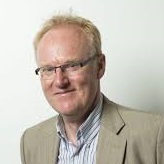- Innovation
Networks for Entrepreneurship
HEC’s Etienne Krieger stresses the value of trust in building support networks for entrepreneurial projects
There must be more to creating a relational network, conducive to supporting a business project, than indiscriminately multiplying connections on social media or collecting business cards at the countless business conventions that have sprung up around the ‘start-up bubble’. So how can one go about developing and maintaining a solid professional network?
Relationships
A young audio-visual entrepreneur once told me about a conversation with a producer on the West Coast of the United States. While he explained the value of his proposal, she retorted: "Here, it is not about what you know but about who you know.” The media sector revolves around relationships and “the ones you know are more important than what you know." In fact, this is not very different for most sectors where you have to deal with a handful of strategic manufacturing, commercial and financial partners.
First and foremost, it is important to define the objectives of the network you need to create to develop your innovative project: getting informed, influencing, anticipating, training, selling, and financing. Then, you must bolster your existing network before looking to develop it all over again. Once the objectives have been clearly defined and your existing network mapped, it will be much easier to gain access to other useful contacts. Your personal and professional network will be able relay your requests for contacts, if they are clearly formulated and the information available about you is consistent and pitched so as to encourage potential partners to want to connect with you.
When previously I produced a thesis focused on the financing of young innovative companies, I underlined a self-realized phenomenon where trust was spread within innovation networks. This can be the case, but on the other hand, the reputation of an entrepreneur and the trust that is often attached to it can just as quickly vanish.
Trust
The simplest way to develop your network is to allow it to spread out from your existing personal and professional network, based on the concept of ‘partial transitivity of trust’ according to which the friends of my friends are a Priori my friends.
As an entrepreneur wishing to increase your relational network, you should aim to associate with people that complement your skillset, who will be anything but clones of yourself. This applies not only to your associates but also to your advisors and the members of a possible strategic committee, which can open many doors for you.
Events organized by specialized groups, or ‘alumni’ associations of universities or business schools, are often excellent places to develop your networks. Having studied at the same institution can create strong links and encourage people to share their address books with their peers. Similarly, participating in incubators or start-up accelerators can provide great opportunities to enrich one’s network.
By way of example, the entrepreneurs selected by the HEC Paris incubator, located at Station F within the main ecosystem of start-ups in Europe, have many opportunities to meet experts, investors, providers and technical or commercial partners – not to mention the chance for informal exchanges with other incubated start-ups. The sharing of experience and ideas is one of the added values of an incubator, where help is needed.
In the end, when we talk about developing our network of relationships, we always come back to trust, an invisible glue of human interaction.
Dr. Etienne Krieger is an Affiliate Professor at HEC Paris. He is academic co-director of the HEC Startup Studio program as well as of the ESA_LAB@HEC 'Exploring the Future of Space Economy' applied research chair created by HEC, ArianeGroup and the European Space Agency (ESA).
He authored numerous books, papers, financial and business tools for entrepreneurs. He has advised more than 800 innovative companies and is member of the Paris Saclay Seed Fund investment committee.
ARTICLES YOU MIGHT LIKE
VIEWPOINT
Cognitive neuroscientist, Lynda Shaw, explains how to understand and support intrapreneurs
DEVELOPING LEADERS QUARTERLY MAGAZINE AND WEEKLY BRIEFING EMAILS

































